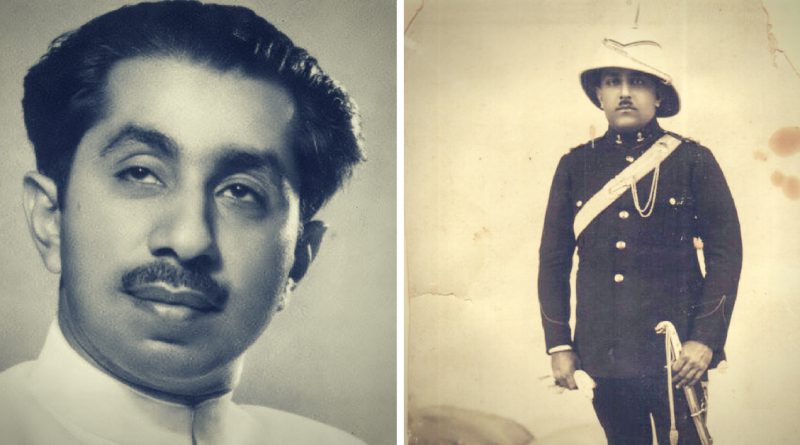Allah Bux Soomro: The Muslim Who Rejected Pakistan, Killed Mysteriously
Today, Soomro’s name is largely absent from Pakistan’s textbooks and official narratives.
In the narrative of Pakistan’s creation, the story is often framed as a unified struggle for a Muslim homeland. Yet, this overlooks the voices of dissent, none more compelling than Allah Bux Mohammed Umar Soomro, the former Premier of Sindh. A devout Muslim and staunch Indian nationalist, Soomro rejected the Muslim League’s Two-Nation Theory, advocating for a secular, united India. His defiance of Muhammad Ali Jinnah and his mysterious assassination in 1943 expose the contradictions and betrayals at the heart of Pakistan’s founding.
A Muslim Nationalist’s Stand
Allah Bux Soomro was no ordinary leader. As Premier of Sindh, he refused to let his Muslim identity be weaponized for political ends. Aligning with Mahatma Gandhi and the Indian National Congress, he championed a vision of India where civic identity trumped religious divides. “I am first an Indian and then a Muslim,” he declared, a statement that encapsulated his commitment to pluralism and unity.
His principles were matched by action. In 1942, Soomro returned his knighthood, a prestigious British honor, as a protest against colonial oppression and in support of the Quit India Movement. This bold move infuriated the British and alienated pro-British Muslim leaders, marking him as a true nationalist. While the Muslim League, led by Jinnah, avoided the Quit India Movement, Soomro’s government backed it, further antagonizing both colonial authorities and the League, which saw Sindh as crucial to its Pakistan agenda.
A Threat to Jinnah’s Vision
By 1943, Soomro’s influence was growing beyond Sindh, reaching Punjab and the North-West Frontier Province (now Khyber Pakhtunkhwa). His message of secularism and unity resonated with Muslims who saw no conflict between their faith and Indian identity. This alarmed the Muslim League, which relied on communalism to consolidate power. Soomro’s popularity threatened Jinnah’s narrative that only the League spoke for India’s Muslims.
Jinnah viewed Soomro as a formidable obstacle, publicly dismissing him as a “Congress stooge.” Soomro’s principled stand made him a target, not just in Sindh but in regions critical to the League’s vision of Pakistan. His ability to rally diverse communities around a pluralist ideal posed a direct challenge to the League’s momentum.
A Mysterious Death
On May 14, 1943, Allah Bux Soomro was assassinated near Shikarpur, Sindh, reportedly by a hired killer posing as a beggar. The official account cited personal motives, but the political context suggests otherwise. Soomro had been ousted from his premiership under pressure from the British and the Muslim League. His rising influence, particularly as his ideas spread to Punjab, made him a threat to Jinnah’s communal agenda. The timing of his death, just as his vision gained traction, points to a calculated act to silence dissent.
Maulana Abul Kalam Azad, a leading Muslim nationalist and Congress president, mourned Soomro’s death as a blow to India’s unity. In India Wins Freedom, Azad praised him as a “man of great character,” lamenting the loss of a leader driven by conscience, not communalism. The murder was not just a personal tragedy but a blow to the vision of a united India.
Erased from History
Today, Soomro’s name is largely absent from Pakistan’s textbooks and official narratives. This erasure is deliberate. His life and death challenge the myth that Pakistan was the unanimous will of Indian Muslims. Many Muslims, like Soomro, opposed partition, advocating for a democratic, pluralist India. His assassination silenced a voice that could have altered South Asia’s trajectory, sparing it the horrors of division.
The hypocrisy is stark: a movement claiming to protect Muslim interests eliminated a Muslim leader who dared to prioritize unity over division. Soomro’s death was not at the hands of Islam’s foes but those who used faith to justify power. His murder underscores the cost of dissent in a movement that brooked no opposition.
A Legacy for Today
As Pakistan grapples with religious extremism and identity crises, Soomro’s story holds vital lessons. The unresolved tensions of its founding—when voices like his were silenced—continue to shape its challenges. Glorifying myths about Pakistan’s creation only deepens these divides. Honoring Soomro means confronting the uncomfortable truths of the past and embracing the values he died for: democracy, justice, and interfaith harmony.
Allah Bux Soomro was more than a Sindhi leader; he was a symbol of what South Asia could have been—a region united by shared ideals, not torn by faith. His mysterious death remains a haunting reminder of the price paid for dissent and the enduring need to reclaim his vision of unity.



